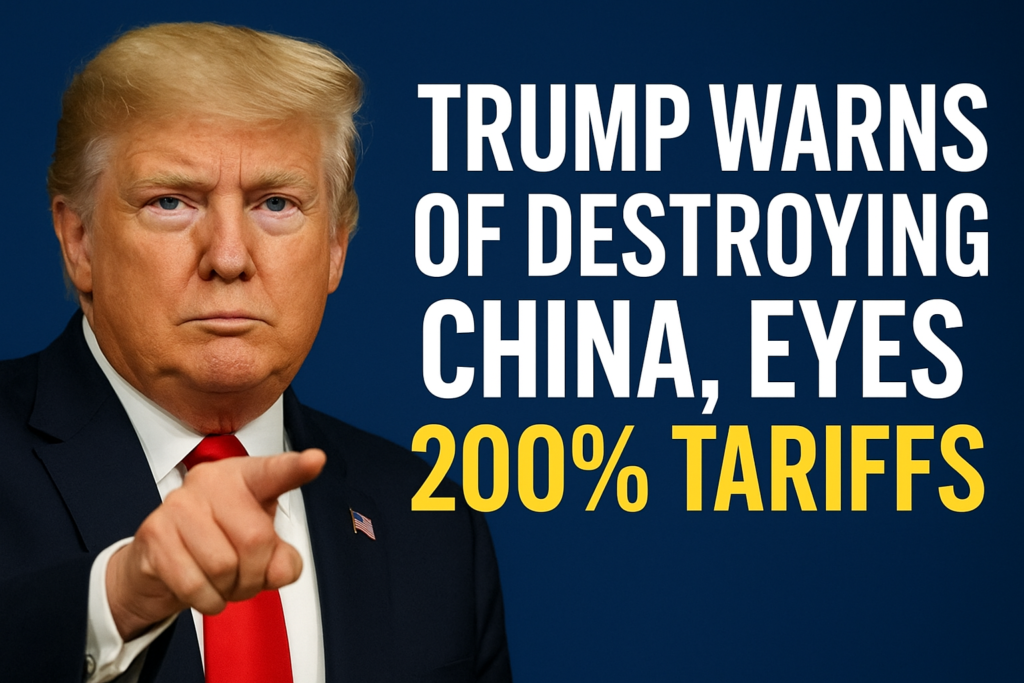Donald Trump threatens to “destroy China” with tough trade measures, hinting at 200% tariffs on rare earths as US-China tensions escalate.
US-China Trade Row: Trump’s Bold Warning and Rare Earths Tariff Threat
Trump’s Fiery Remark in Washington

Former U.S. President Donald Trump once again turned the spotlight on his tough stance toward China. During his meeting with South Korean President Lee Jae-myung at the White House, Trump declared that America holds “incredible cards” against Beijing. Then came the thunderous line: if he wanted, he could destroy China’s economy.
He didn’t explain the details, nor did he soften the words. Instead, he left the remark hanging—heavy, provocative, and deliberate.
A Fragile Pause in the Trade War
Interestingly, Trump’s statement comes right after Washington and Beijing agreed to extend their trade truce. On August 12, both sides settled on an additional 90-day pause to iron out disputes. It’s a fragile peace, almost like two chess players freezing the board while deciding whether to sacrifice a queen or a knight.
Tariffs Already Hurting Both Sides
Trade tariffs are no longer just threats—they’re reality.
Earlier this year, U.S. duties on some Chinese goods reached a staggering 145%.
Currently, most imports from China face around a 30% tariff.
China retaliated with a 10% duty on American goods.
It’s a tug-of-war, with both economies bleeding but neither willing to loosen grip.
The Rare Earths Card: A Potential Game-Changer
Perhaps the most dramatic element of Trump’s warning was his mention of rare earths. He hinted at imposing 200% tariffs if China restricted the supply of magnets and minerals critical for U.S. industries.
This isn’t a random move. Rare earths power smartphones, defense systems, and electric vehicles. Without them, modern economies slow down. China controls the lion’s share of global production—making this threat far more than just political theater.
Beijing’s Counter-Move
Not long ago, China tightened its export rules on rare earth elements. Analysts believe it was a clear warning shot—Beijing signaling it won’t hesitate to use its natural resources as a bargaining chip.
So while Trump talks tariffs, China holds its own ace: minerals the world cannot easily replace.
The Oil Angle and Wider Concerns
Adding another layer to the dispute, U.S. Treasury Secretary Scott Bessent raised alarms about China’s oil imports from countries under American sanctions, including Iran and Russia. Washington argues that such purchases empower regimes it sees as destabilizing.
The U.S. wants China to shift roles—less of a state-controlled exporter, more of an open-market importer. But that’s easier said than done.
What Lies Ahead?
The U.S.-China trade row has stretched for years, with each side testing the other’s patience and economic endurance. Trump’s latest words add fire to an already tense landscape.
Will the extended truce pave the way for compromise? Or will the rare earths battle open a new front in this global economic rivalry?
For now, the world waits, watches, and wonders—because when two economic giants clash, the tremors are felt everywhere.
